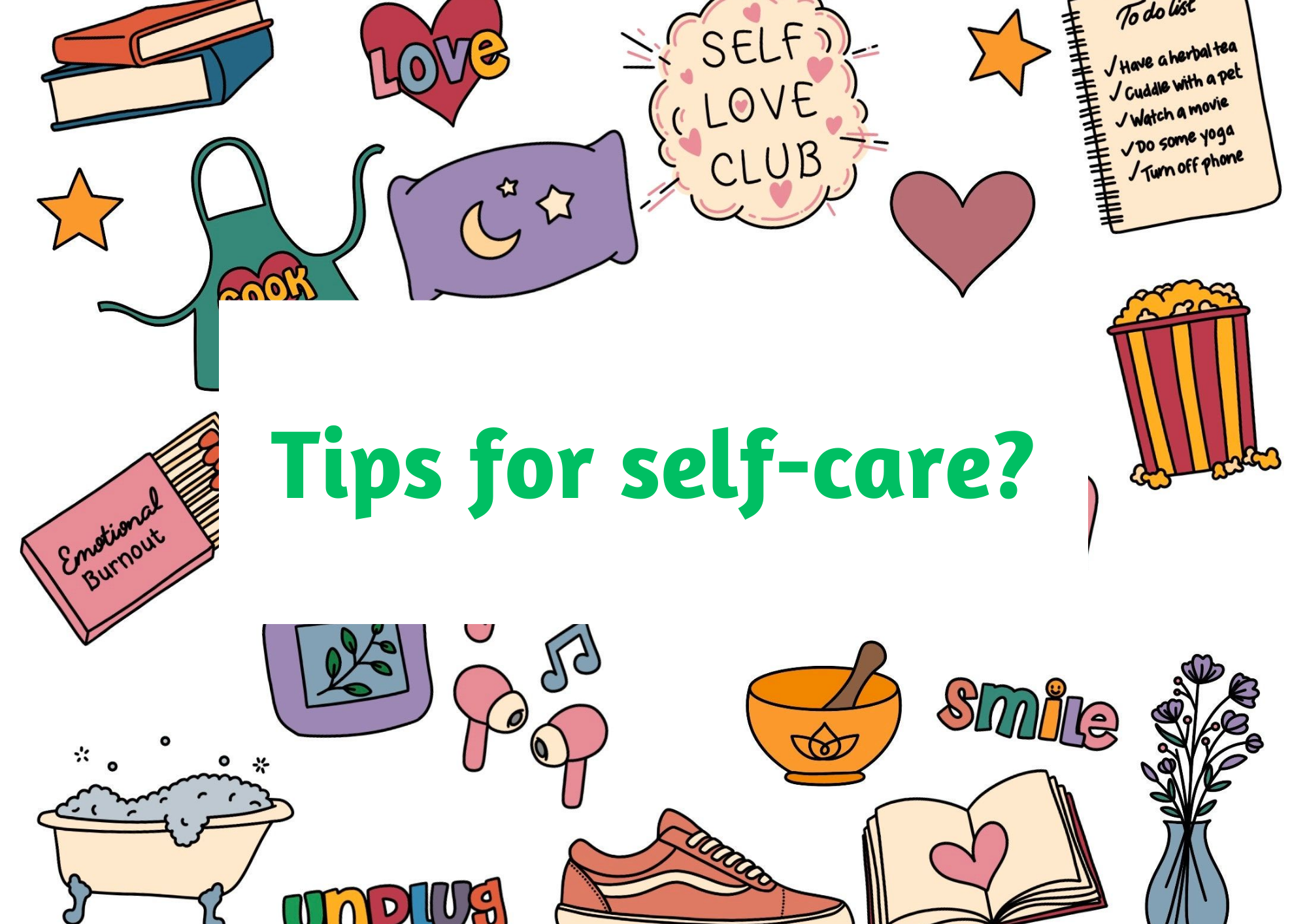
Tips for self-care?
In today’s fast-paced world, where demands and responsibilities seem endless, it’s all too easy to prioritize everything and everyone except ourselves. We often find ourselves navigating through the chaos of daily life, neglecting our well-being in the process. This article serves as a comprehensive guide to understanding and implementing effective self-care practices. If you’re focused on your career, taking care of others, or just trying to grow and feel happier, the tips and ideas shared here are meant to help you. They’re designed to give you the tools to make self-care a priority and look after your whole self.

Source: Wanderlust Calls
Self-care
Self-care means doing things on purpose to take care of your body, mind, and feelings. It’s about knowing what you need, setting limits, and doing things that help you feel good and relaxed. This can include getting enough sleep, eating well, and doing things you enjoy. Self-care helps you stay balanced, feel less stressed, and live a better life overall. It’s about being kind to yourself and doing things that make you happy and healthy.
Tips to help you master the art of self-care
- Be Kind to Yourself: Treat yourself with the same care and forgiveness you show to others. Embrace your flaws and learn from mistakes, laying the groundwork for a healthier self-care routine.
- Know Your Limits: Say no to tasks that drain you or cause stress, preserving your mental and emotional health. Make sure you know your limits and tell others about them without hesitation..
- Eat Well: Fuel your body with nutritious foods like fruits, veggies, and whole grains, staying hydrated and avoiding excessive caffeine and sugary drinks.
- Get Enough Sleep: Quality rest is vital for your body and mind. Create a calming bedtime habit and try to get 7-9 hours of sleep every night.
- Stay Active: Exercise not only benefits your body but also boosts mood and mental health. Look for things you like doing and try to do them for about 30 minutes every day.
- Stay Present: Practice mindfulness through activities like meditation or deep breathing, reducing stress and promoting inner peace.
- Take Breaks: Disconnect from screens and social media regularly to recharge your mind. Take some time to relax outdoors or do things you enjoy for fun and relaxation.
- Build Relationships: Invest in meaningful connections with loved ones. Be around people who encourage and motivate you to be your best self.
- Find Joy: Make time for activities that bring you happiness, whether it’s painting, gardening, or playing music.
- Seek Help: If you need it, don’t be afraid to ask for help from professionals. Therapy or counseling can offer valuable guidance on your self-care journey.
- Be Thankful: Writing in a gratitude journal can change how you see things and make you feel better.
- Reflect: Take some time to think about your thoughts and feelings without deciding if they’re good or bad.
- Celebrate Progress: Recognize and celebrate your achievements, no matter how small, to boost self-esteem and motivation.
- Make Self-Care a Habit: Incorporate self-care into your daily routine, seeing it as essential for your well-being rather than a luxury.
Importance of Self-care
- Physical Health: Self-care is essential for maintaining physical health by prioritizing activities such as regular exercise, nutritious eating, and adequate sleep, which are fundamental for a healthy body.
- Mental Well-being: Engaging in self-care practices like mindfulness, meditation, and relaxation techniques promotes mental well-being by reducing stress, anxiety, and depression, thus enhancing overall psychological resilience.
- Emotional Stability: Self-care helps individuals cultivate emotional stability by encouraging self-compassion, self-awareness, and healthy coping mechanisms, enabling them to navigate through life’s challenges with greater ease.
- Improved Relationships: Investing in self-care fosters healthier relationships with oneself and others by promoting self-love, assertiveness, and effective communication skills, leading to more fulfilling and harmonious interactions.
- Enhanced Productivity: Prioritizing self-care boosts productivity and performance by replenishing energy levels, sharpening focus, and fostering creativity, resulting in greater efficiency and success in both personal and professional endeavors.
- Increased Resilience: Self-care builds resilience by equipping individuals with the tools and resources needed to cope with adversity, setbacks, and stressful situations, enabling them to bounce back stronger and more resilient than before.
- Prevention of Burnout: Practicing self-care helps prevent burnout by encouraging individuals to set boundaries, manage stress effectively, and prioritize their own needs, thus reducing the risk of physical and emotional exhaustion.
- Greater Life Satisfaction: Incorporating self-care into daily life promotes a sense of fulfillment, purpose, and contentment by honoring one’s own needs, values, and aspirations, leading to a more meaningful and satisfying existence.
Taking care of yourself isn’t just something nice to do; it’s really important for feeling good and balanced in life. When you make your physical, mental, and emotional health a priority, it helps you handle tough times better, have better relationships, and feel happier. Try out these tips now and see how they can help you learn more about yourself and grow as a person.




